This article was co-authored by wikiHow Staff. Our trained team of editors and researchers validate articles for accuracy and comprehensiveness. wikiHow's Content Management Team carefully monitors the work from our editorial staff to ensure that each article is backed by trusted research and meets our high quality standards.
There are 7 references cited in this article, which can be found at the bottom of the page.
wikiHow marks an article as reader-approved once it receives enough positive feedback. In this case, 100% of readers who voted found the article helpful, earning it our reader-approved status.
This article has been viewed 82,286 times.
Learn more...
Have you ever wondered how all that high-tech, fancy medical equipment is used and maintained? Well, it’s all thanks to a trained specialist known as a medical technologist, also known as a medical laboratory scientist. They’re the people who do things like make sure medical equipment is properly configured and functional. They can also perform lab tests and analyze blood, body fluids, and tissue samples. It’s a great job and it isn’t as difficult to become one as you may think. To help explain the process of what it takes to become a medical technologist, we’ve answered some of the most common questions that people have.
Steps
What degree do I need to be a medical technologist?
-
1You need a bachelor’s degree in medical technology. After you graduate high school or earn your GED, you can apply to universities that offer bachelor’s degrees in medical technology. You’ll take a variety of courses such as biology, chemistry, genetics, phlebotomy, immunology, and biostatistics. You’ll also learn professional training such as healthcare ethics and experience working in a lab to get hands-on training. Once you graduate with your degree, you’ll be a trained medical technologist![1]
- Some colleges offer online programs in medical technology so you can learn at home and on your own time!
- You can also pursue an associate’s degree in medical technology, but keep in mind that many states require a bachelor’s degree in order to be a certified medical technologist.[2]
-
2Some military programs also offer medical technologist training. If you join the medical field in a branch of the military such as the Army or Navy, you can receive classroom and hands-on training as a medical technologist. While the training may not certify you as a licensed medical technologist, it can count as your work experience and you can pursue a degree online while you’re serving so when you leave the military, you can easily get certified and apply for jobs.[3]
- If you’re interested in joining the military to pursue training as a medical technologist, talk to a recruiter about what you need to do to make it happen.
Advertisement -
3Earn a master’s degree to advance your career in management. A master’s degree in medical laboratory science will give you education and training beyond a bachelor’s degree, including coursework that will position you as a future leader in the field. If you plan to move into upper management positions in the industry and earn more money, you may want to pursue a master’s degree.
- The field of medical laboratory science is dynamic and constantly evolving. A master’s degree can help make sure you’re set up to succeed.
References
- ↑ https://www.exploremedicalcareers.com/medical-technologist-technician/
- ↑ https://learn.org/articles/Medical_Technician_5_Steps_to_Becoming_a_Certified_Medical_Tech.html
- ↑ https://www.medicaltechnologyschools.com/medical-lab-scientist/how-to-become-an-mls
- ↑ https://pubmed.ncbi.nlm.nih.gov/18709992/
- ↑ https://www.exploremedicalcareers.com/medical-technologist-technician/
- ↑ https://www.missouristate.edu/human/jobdescriptions/6412-medical-technologist.htm
- ↑ https://learn.org/articles/Medical_Technician_5_Steps_to_Becoming_a_Certified_Medical_Tech.html
- ↑ https://www.allalliedhealthschools.com/medical-technician/
- ↑ https://www.allalliedhealthschools.com/medical-technician/medical-technologist-programs/
About This Article
To become a medical technologist, get your high school diploma and then enroll in an accredited program for laboratory sciences. Get your Bachelor's degree in a science related field, such as medical technology or laboratory sciences. While you're in school, get internships and practicum experience in labs, hospitals, and doctor's offices. Once you graduate, set up interviews with local medical facilities, or consider getting an advanced degree, such as a Master's in medical research. For tips on being successful in the field and making connections, scroll down!
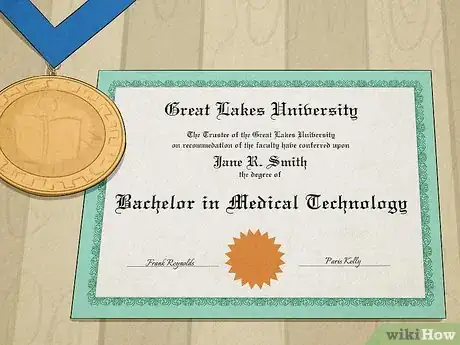
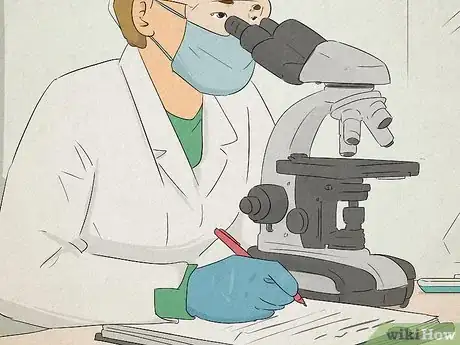
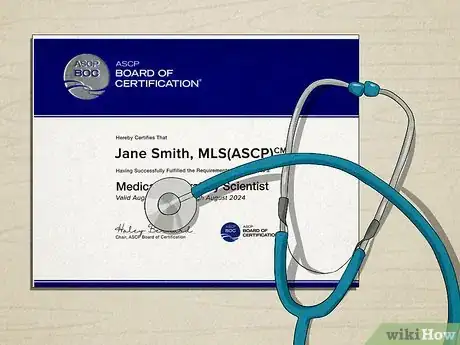
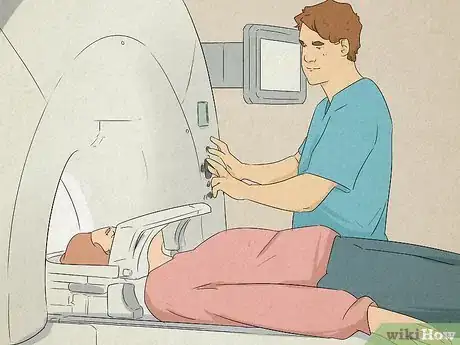



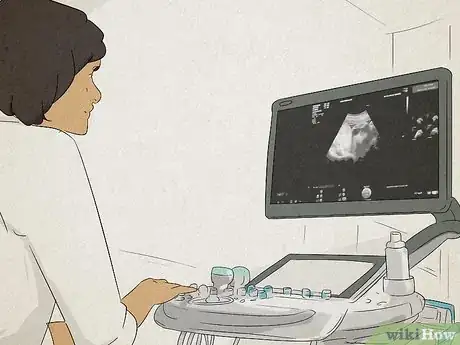
































































Medical Disclaimer
The content of this article is not intended to be a substitute for professional medical advice, examination, diagnosis, or treatment. You should always contact your doctor or other qualified healthcare professional before starting, changing, or stopping any kind of health treatment.
Read More...